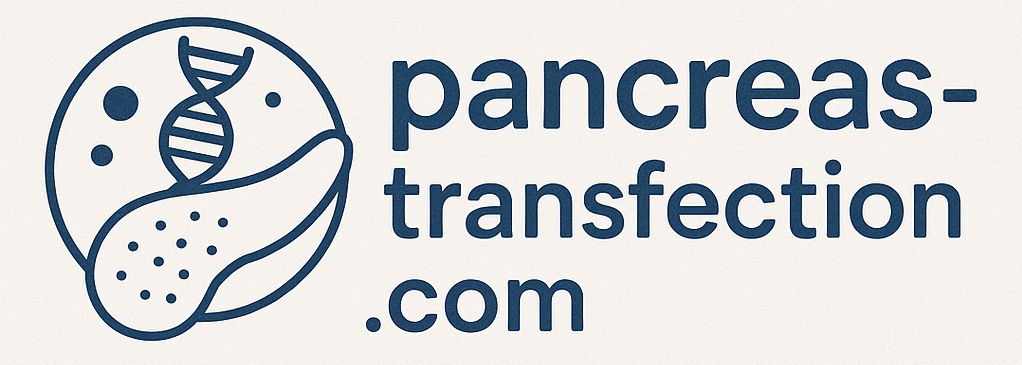
Introduction to Beta-TC-6 Cells
Beta-TC-6 cells are a mouse pancreatic beta-cell line derived from insulinomas formed in transgenic mice expressing the SV40 large T-antigen under the control of the rat insulin promoter. These cells exhibit properties characteristic of pancreatic beta-cells, including insulin production, glucose-stimulated insulin secretion, and expression of beta-cell-specific transcription factors. Because of these properties, Beta-TC-6 cells are extensively used as a model system in diabetes research, particularly for understanding mechanisms of insulin synthesis, beta-cell function, and gene regulation under diabetic conditions.
Importance of Transfection in Beta-TC-6 Cells
Transfection of Beta-TC-6 cells is essential for studying gene function, regulating gene expression, performing knockdown experiments using siRNA, and introducing plasmids for gene overexpression or reporter assays. Transfection is also used to introduce CRISPR/Cas9 constructs for genome editing. However, transfecting Beta-TC-6 cells presents challenges due to their sensitivity, low endocytic activity, and dependence on serum for survival. These cells are prone to stress responses, which can lead to cytotoxicity or reduced transfection efficiency when using non-optimized methods.
Altogen Beta-TC-6 Transfection Kit Overview
The Altogen Beta-TC-6 Transfection Kit was specifically developed to overcome these challenges. This proprietary reagent system enables efficient transfection of Beta-TC-6 cells in the presence of serum without inducing significant cytotoxicity. The kit supports delivery of siRNA, plasmid DNA, mRNA, miRNA, and CRISPR/Cas9 constructs. It includes a cationic lipid-based transfection reagent, a serum-compatible enhancer to promote endosomal escape, and an optional condenser to facilitate nucleic acid complex formation, especially for larger plasmid constructs. This formulation is optimized for maintaining cell viability above 85% while achieving transfection efficiencies of 75-90%, depending on the nucleic acid cargo.
Transfection Protocol and Workflow
The standard transfection workflow involves seeding Beta-TC-6 cells at 40-70% confluence and incubating them in complete medium containing 10% fetal bovine serum. Nucleic acids are mixed with the Altogen reagent and allowed to form complexes for 15-30 minutes before being added to the cells. The enhancer can be added 12-24 hours post-transfection to further increase intracellular delivery. For large constructs or genome editing applications, the condenser is recommended. After 24-72 hours, gene expression or knockdown can be assessed using qPCR, Western blotting, or reporter assays.
Product Formats and Customization Options
The Beta-TC-6 Transfection Kit is available in multiple formats, including 0.5 mL, 1.5 mL, and 8 mL volumes, suitable for low-, medium-, and high-throughput applications. Altogen also offers a CRISPR-optimized version of the kit designed for efficient genome editing. Unlike generic liposomal reagents that often fail in serum-containing conditions or cause high toxicity, Altogen’s formulation is validated specifically for Beta-TC-6 cells and is compatible with complete growth medium. The kit outperforms common alternatives such as Lipofectamine and PEI by offering higher transfection efficiency, lower toxicity, and a streamlined protocol suitable for both basic research and high-throughput screening.
Research Applications
Typical applications of this transfection kit include siRNA-mediated knockdown of insulin regulatory genes, overexpression of transcription factors such as Pdx1 and MafA, introduction of GFP- or luciferase-tagged reporter plasmids, and CRISPR/Cas9-mediated gene knockout or knock-in. The kit supports both single and co-transfection protocols, allowing for multiplexed experiments such as siRNA and plasmid co-delivery. This is particularly useful in drug screening setups where gene function and compound interaction must be assessed simultaneously.
Optimization and Troubleshooting
To optimize transfection, Altogen recommends titrating the reagent, ensuring high-quality nucleic acid preparations, and maintaining cells at the recommended density. Troubleshooting steps are provided for common issues such as low transfection efficiency, high cytotoxicity, or lack of gene expression. The reagent is sterile-filtered, endotoxin-free, and has a shelf life of 12 months when stored at 4°C.
Request the Altogen Beta-TC-6 Transfection Kit
To experience the benefits of high-efficiency, low-toxicity transfection in Beta-TC-6 cells, request the Altogen Beta-TC-6 Transfection Kit today. Visit the official product page to learn more and place an order.
